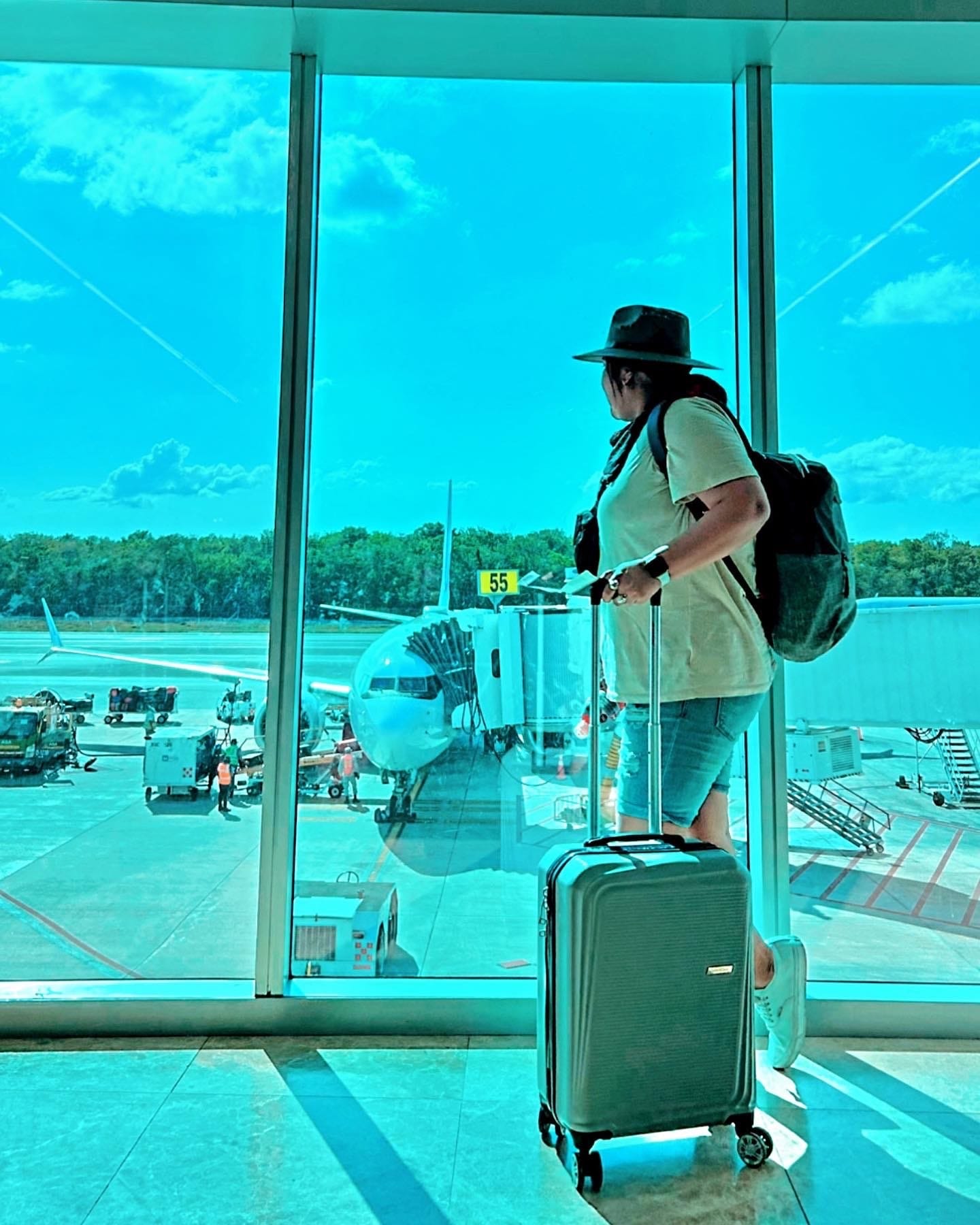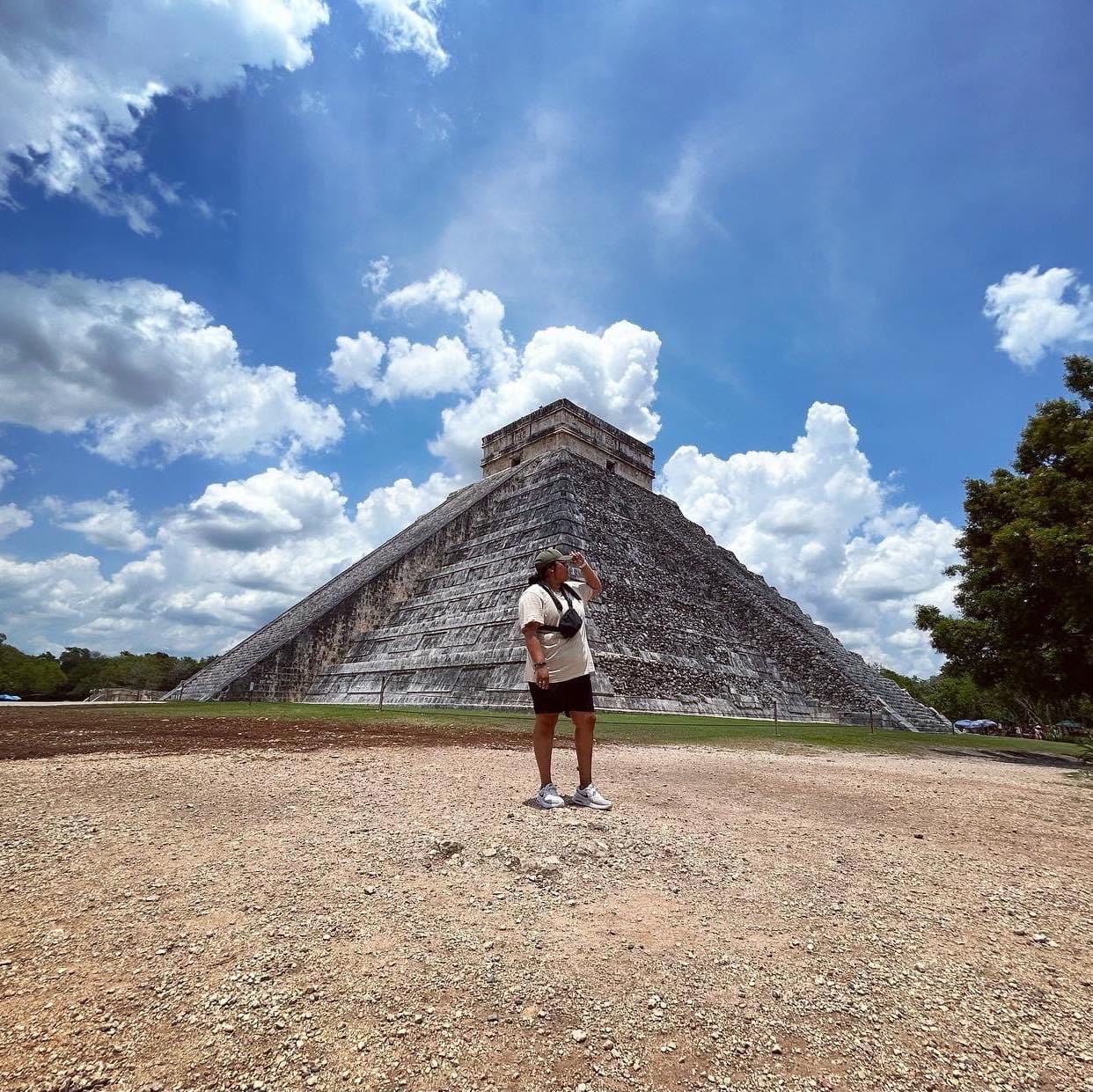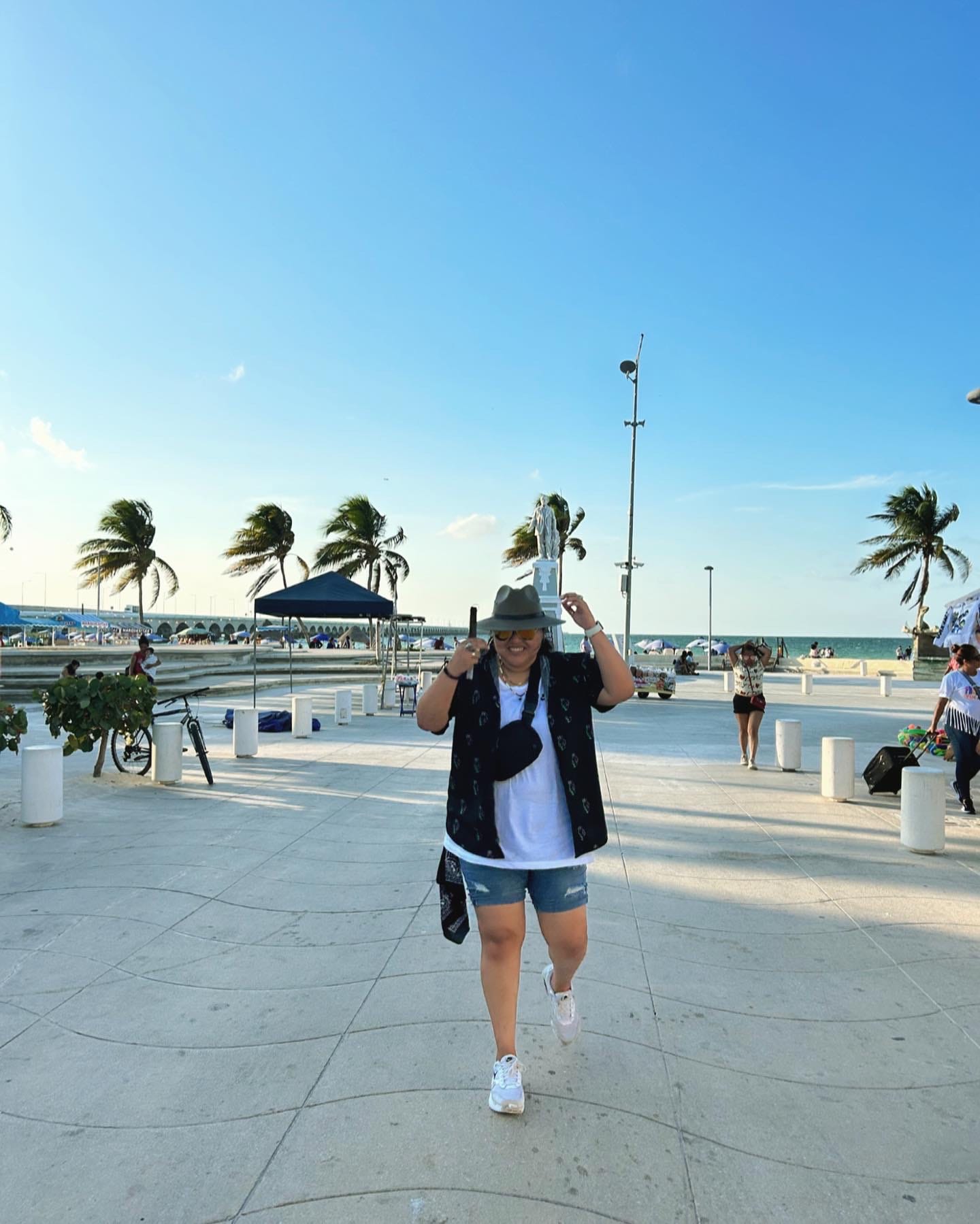Her post-secondary journey began with some degree of uncertainty, but Piitakomii (Eagle Calling) Marla Medicine Shield isn’t questioning the decisions she’s made during her studies at ULethbridge.
One of those was enrolling in an international exchange this past summer, Bridging Indigenous Cultures Between Canada and Mexico, and paid off with a “once-in-a-lifetime” experience for Marla.
It was my first time travelling so far away from my family, let alone my first time going to an airport, flying on a plane, and travelling cross-country. My family grew up poor, so we never got to experience things like that. It was a memorizing trip for sure.
Meet Piitakomii (Eagle Calling) Marla | Leader. Trailblazer. Intergenerational cycle-breaker.
Program: Bachelor of Health Sciences | Major: Addictions Counselling
Hometown: Lethbridge
The exchange immersed Marla and her undergraduate classmates in the Mayan Indigenous culture at the Universidad Intercultural Maya de Quintana Roo (UIMQRoo). They worked alongside Mayan students and visited their communities as well as several historic sites and attractions. While Marla treasured the opportunity to make new friends and connections in a different country, the trip also proved to be an eye-opening experience for her.
“Learning about the Mayan culture was a humbling lesson, as I did not realize that there are other Indigenous people and communities who have suffered the same post-colonization problems that us as Niitsitapi have faced,” she says.
Marla was seeking a career where she could help others, but wasn’t sure of a specific path after graduating college with a diploma in general studies psychology/sociology. She transferred to ULethbridge, which allowed her to remain close to family in her hometown, and enrolled in the one-year Indigenous Student Success Certificate (ISSC) program. That proved to be another smart choice, as it helped her connect with other Indigenous students and also gave Marla the opportunity to explore multiple career pathways.
“I was then introduced to Bachelor of Health Sciences addictions counselling and was automatically interested, as I want to help Indigenous youth suffering with addiction,” she says.
After graduation, Marla hopes to work on-reserve within the mental health field and then continue her education and pursue her master’s in addictions counselling after she gains work experience. She knows support is crucial on-reserve, noting the truth in the adage that Indigenous people attend more funerals than any other event within their lifetime.
Too many have lost loved ones to addiction, illness or suicide, says Marla, and she was no different. When she began university, she was grieving the loss of multiple family members and friends. Her estranged father had also been diagnosed with a terminal disease, and the two were able to rekindle bonds over his last few months. Marla was very appreciative of the support shown by ISCC staff at the time.
“While everyone was preparing to hand in final assignments and research papers, I was preparing to bury and say my final goodbye to my dad,” she says. “My biggest lesson from this experience was resiliency, and learning to use grief as motivation to finish what I had started in honour of those who are no longer here with us.”
The only guarantee of failure is to stop trying, says Dr. Michelle Hogue, Marla’s professor for the cultural exchange.
“Marla never gives up. When I think of persistence, resilience and strength, I think of Marla,” she says.
Marla’s advice for Indigenous students beginning their educational journey at ULethbridge is not to be afraid to ask for help, as there are plenty of people who care about their well-being.
“I know there is a stigma behind being ‘strong.’ A part of being strong, however, is being able to ask for guidance, as I know for the cycle breakers out there, we are very independent people. Just remember that you are not alone, everyone has their own story, and our ancestors would be very proud of you,” she says.



Photos submitted by Piitakomii (Eagle Calling) Marla Medicine Shield.
- Apply
- Find admission details
- Request info
- Talk to a recruiter
- Book a tour
- Take a virtual campus tour